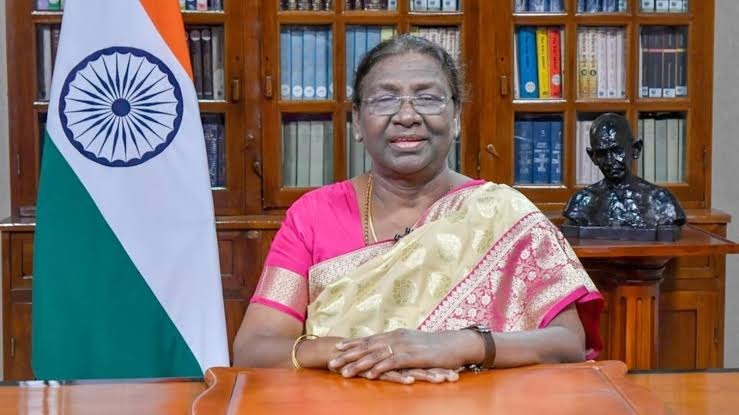President Draupadi Murmu has sought advice from the Supreme Court using a rare constitutional provision under Article 143 (1) of the Constitution. He has taken this step with 14 important questions, which are related to the deadline of decision-making by the President and the governors on the bills sent by the State Governments, especially when no such time limit is specified in the Constitution.
This reference has come in the context of the Supreme Court’s decision of 8 April, in which the court had set a time limit for the Governor and the President to take action on the Bills. It was said in this decision that if the governor does not agree on a bill or protects it for the President’s views, then this work should be done within three months of the presentation of the bill. Additionally, if the State Legislature re -passes a uniform bill, the Governor should agree immediately or within a month. The President also, if a bill is sent by the Governor for his consideration, a decision should be taken within three months, and if it is delayed, it is necessary to give reasons to the concerned state.
Under these circumstances, the President has sought advice from the Supreme Court on the following 14 questions:
When a bill is presented to the Governor under Article 200 of the Constitution, what constitutional options are available to them?
Is it mandatory for the Governor to follow the advice of the Council of Ministers while deciding the bill under Article 200?
Is a judicial testing of the constitutional discretion conducted by the Governor under Article 200?
Does Article 361 of the Constitution impose a complete ban on the judicial review of the functions of the Governor?
If the deadline is not specified in the constitution, can the court set a time limit for the work of the Governor under Article 200?
Is a judicial testing of the constitutional discretion conducted by the President under Article 201?
If the deadline is not specified in the constitution, can the court set a time limit for the President’s discretion under Article 201?
Should the President consult the Supreme Court under Article 143 when the governors send a bill for his views?
Can the decisions of the Governor and the President under Article 200 and 201 be done at the stage when the bill is not yet enacted?
Can the constitutional orders of the President/Governor be replaced in any form under Article 142?
Is the bill passed by the State Legislature, without the consent of the Governor, is effective as a law?
Whether according to the provisions of Article 145 (3), it is mandatory for any bench of the Supreme Court to decide whether the matter raises important questions related to the interpretation of the Constitution and should be sent to a bench of at least five judges?
Are the powers of the Supreme Court only limited to procedural laws under Article 142, or can it issue instructions or orders contrary to the existing constitutional or statutory provisions?
Does the Constitution deprive the Supreme Court of any other jurisdiction besides resolving disputes between the Union and the State Governments under Article 131?
Through these questions, President Murmu has demanded clarity and guidance from the Supreme Court to clarify the role in the legislative process of the President and the governors.









